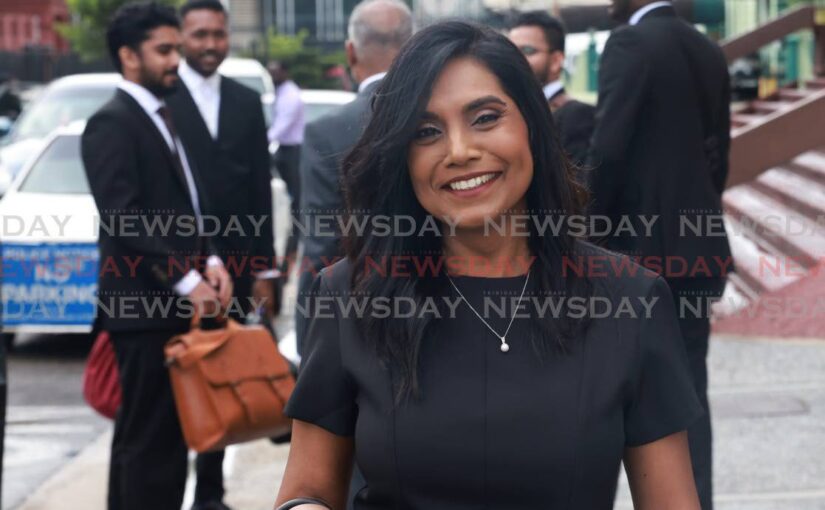Donald Trump’s recent social media critique of Bangladesh, accusing it of “barbaric violence” against religious minorities and claiming it is in...
Vous n'êtes pas connecté
- English
- Français
- عربي
- Español
- Deutsch
- Português
- русский язык
- Català
- Italiano
- Nederlands, Vlaams
- Norsk
- فارسی
- বাংলা
- اردو
- Azərbaycan dili
- Bahasa Indonesia
- Հայերեն
- Ελληνικά
- Bosanski jezik
- українська мова
- Íslenska
- Türkmen, Түркмен
- Türkçe
- Shqip
- Eesti keel
- magyar
- Қазақ тілі
- Kalaallisut ; kalaallit oqaasii
- Lietuvių kalba
- Latviešu valoda
- македонски јазик
- Монгол
- Bahasa Melayu ; بهاس ملايو
- ဗမာစာ
- Slovenščina
- тоҷикӣ ; toğikī ; تاجیکی
- ไทย
- O'zbek ; Ўзбек ; أۇزبېك
- Tiếng Việt
- ភាសាខ្មែរ
- རྫོང་ཁ
- Soomaaliga ; af Soomaali
Rubriques :
 Maroc - EURASIAREVIEW.COM - A la une - 10/Sep 15:18
Maroc - EURASIAREVIEW.COM - A la une - 10/Sep 15:18
Ghazal And The Vibe Of Politics In Bangladesh – OpEd
The people of Bangladesh, India and Pakistan are divided by politics but united by various forms of music including ghazal and qawwali. The ghazal, which became the soundtrack of Indian movies and became popular all over the world including Bangladesh, is found to have been born in Pakistan."Sochta he o kitne masum thay, kayse kya ho gaya dekhte dekhte” is such a ghazal. Nusrat Fateh Ali Khan, the composer and original artist of this ghazal, was born in Faisalabad, Pakistan, formerly known as Lyallpur. The recreated Indian version of Nusrat Fateh Ali Khan’s original song Dekhte Dekhte is sung by Atif Aslam. This version, sung by Atif Aslam, was incorporated into the 2018 Mumbai drama film Batti Gul Meter Chalu starring Shahid Kapoor and Shraddha Kapoor. The Indian version of this song was written by Manoj Muntashir and composed by Rochak Kohli. Both Indian version of this Pakistani ghazal is very much popular in Bangladesh. The discussion of the present write-up is organized around this ghazal, it's homeland Faisalabad, Pakistan, and the curse of communalism. In a video, some students of Dhaka University are seen singing this ghazal. The meaning of the first line of this ghazal mentioned above is, I thought how innocent (masoom) he was, but what happened afterwards. Among the students of Dhaka University who were singing this ghazal in the video is Asif Mahmud, advisor to the current interim government. The video is one and half years old. In accordance with the first line of the ghazal, a political commentator and analyst of Bangladesh has tried to explain where the current situation of the country has reached or is reaching. However, a Bengali song sung by Bangladeshi voice artist Haider Hossain (What to see what I see? Even after thirty years, I am looking for freedom),the question of the history of the people of Bangladesh is more clearly revealed, than the Urdu ghazal,'Sochtahe O Kitne Masum Thaye…’ However, Haider Hossain sung this song after thirty years of Bangladesh’s independence. But even after fifty-four years of independence, the lyrics of Bengali artist Haider Hossain are more equally relevant! At the beginning of the discussion on the philosophy of the interim government, a political commentator and analyst presented a segment of the video "Sochtahe O Kitne..." sung by some students of Dhaka University. The analyst wanted to say that the central leadership of the anti-discrimination student movement was planning to reform the entire state apparatus long ago, even if they looked "innocent". In other words, the main six coordinators of the anti-discrimination student movement, Nahid Islam, Asif Mahmud, Sargis Alam, Hasnat Abdullah, Nusrat Tabassum, and Abu Bakr Majumdar had been taking preparation long ago. However, later it was known that behind the scenes there was one more person in this group and that is Md. Mahfuz Alam. Later he was appointed as special assistant to the chief adviser. Mahfuz Alam is being termed as the mastermind of the July(2024) movement on social media. In addition, Mahfuz Alam is one of the traveling companions of the Chief Adviser to attend the 79th session of the United Nations General Assembly, to be held in New York on September 23-27, 2024. Other tour companions of the chief advisor are Dina Afroz Yunus, daughter of Dr. Yunus, Chief Coordinator for SDG Affairs Lamia Morshed, Head of White Paper Drafting Committee on Economic Status Debapriya Bhattacharya and Managing Director of DRIC Shahidul Alam, Assistant Private Secretary to Chief Adviser Shabbir Ahmad and BRAC University student Ayesha Siddika Tithi. Dr. Yunus will travel with the smallest group, that have gone so far from Bangladesh to attend the UN General Assembly session. However, the commentator or analyst of the said analysis concealed or did not mention ‘whether the July 2024 was actually a part of any conspiracy hatched by the US, Pakistan or China?’ It is also worth mentioning that even before 1971, the student leadership of this country had planned to organize our liberation war for independence. Writer and researcher Mohiuddin Ahmad in his write-up entitled “Sirajul Alam Khan and the Nucleus of Independence”, wrote, 'since 1962, "a nucleus within the student organization was working towards the independence of Bangladesh.” In the same way, Mahbub Arif in his article titled “Nucleus, Bangabandhu and Independence” says, '...Nucleus' has advanced rapidly since 1964. In this way, by 1968, 300 units of revolutionary councils or nuclei were formed in schools, colleges, and universities throughout Bangladesh (East Pakistan). Each unit had 9 members. Each subdivision had four to five members. A secret committee of five members was formed in major educational institutions under the subdivision. In 1968-70, the membership of the 'nucleus' increased to seven thousand. The 11-point movement was accelerated by the liberation of Sheikh Mujib and the one-point movement of independence was carried forward through the nucleus. In short, the nucleus had complete authority over the student body. Later, the labor organization was formed according to the action plan of the nucleus and needless to say, the labor organization was also managed by the revolutionary council or the leaders of the nucleus.’ Mahbub Arif also said that this nucleus of independent Bangladesh was formed under the direct instruction of Bangabandhu Sheikh Mujib. Sirajul Alam Khan, a follower of Bangabandhu Sheikh Mujib before independence, was one of the leaders of the ‘independent Bangladesh nucleus’ since 1962. Sirajul Alam Khan was born in Begumganj of Noakhali. On the other hand, Md. Mahfuz Alam, the special assistant to the chief advisor and the master mind of the July Movement, was born in Ramganj of Noakhali. In addition to all this, a little light can be shed on the 'curse and blessing' about the country of Pakistan! Pakistan recently introduced visa-free travel for Bangladeshis. Whether it is a curse or a blessing is not understood now. However, like this popular ghazal artist Nusrat Fateh Ali Khan, many were born in Lyallpur or Faisalabad. A few names are worth mentioning here. Mumbai film legend Prithviraj Kapoor was born in Lyallpur. Apart from this, many of the famous people of present day India were born in various places in Pakistan including Lyallpur or Faisalabad. Madanlal Khurana, the former governor of India's capital Delhi, Indian film director Varun Grover, India's famous writer Harisingh Dilbar, India's famous molecular biologist Om P. Bahl, the former president of the World Peace Council, Ramesh Chandra, etc. were all born in Lyallpur or Faisalabad in the Punjab province of Pakistan. But especially after the birth of the communal state of Pakistan on the basis of religion in 1947, these wise and virtuous people had to leave their homeland Faisalabad i.e. Pakistan. Pakistan became a cursed country for them. Therefore, even if Faisalabad seems to be a blessing to lyricist and artist Nusrat Fateh Ali Khan or to ghazal lovers like me (the city where the said ghazal was created), Faisalabad or Pakistan is not a blessing for Prithviraj Kapoor, Madanlal Khurana etc., it has become a living curse! If they had been blessed, they would have stayed in Faisalabad i.e. Pakistan. These wise-men should not have left their native land to go to India. Those who chanted slogans during the anti-discrimination movement of Bangladesh "Bharat jader mama bari, Bangla charo taratari" (Those whose uncles home in India, they should leave Bengal immediately), have somehow indulged in the ugly communalism of expelling the religious minorities of Bangladesh from their native land. Are they not sprinkling salt on the burning wound of communalism? Have they ever thought about it?! There are many examples, where many people are found to have been born here but forced to leave Bangladesh. Now, they are living in India but their nephews, nieces and other relatives are living in Bangladesh. The sad fact is that they are now separated from their relatives. Bangladesh, the motherland, no longer blessed them. permanently relinquishing the eternal right to the property and liberty of the dear native land. They are suffering from the permanent pain of forced deprivation! Not only the relatives of Bangladeshi Hindus are living in Bharat, the relatives of many Bangladeshi Muslims, Buddhists and Christians have been living in India and Pakistan. It is pertinent to mention that religious minority Hindu Buddhist Christian people have been expelled from their native land since long ago by the ill-intentioned forces of the Muslim majority communal people of Bangladesh and Pakistan. Now they are basically living permanently in the neighboring country India with permanent pain. There was no difficulty if the matter was natural, because people can move from one place to another. But especially in the case of Bangladesh and Pakistan, this issue of communalism has also come up during the recent movement of Bangladesh. One of the pretexts or reasons behind India's passage of the CAA was to forcibly expel non-Muslims from their homelands in Afghanistan, Pakistan and Bangladesh. It maybe mentioned that, Indian political system has devised several democratic mechanisms to address the problems of their religious and ethnic minorities. For example, there is a Ministry of Minority Affairs for the ethnic and religious minorities in India, whose function is to take necessary steps to solve various problems of the minorities. The previous government of Bangladesh had promised various measures for the minorities but it was not implemented. Dr. Yunus, chief adviser to the present interim government, also assured the minority to take action against the perpetrators of attacks on them. After taking charge, Chief Adviser, Law Adviser and Religious Adviser visited the Dhakeshwari National Temple and also promised necessary steps to protect the constitutional rights of Hindu, Buddhist and Christian communities as well as all citizens. We hope that the interim government will take such steps so that the people of Bangladesh's ethnic and religious minorities do not have to leave their beloved mother-land to save their lives.
Articles similaires
Navya Naveli Nanda’s Entreprenaari Mela was a success, here’s how it went!
The much-anticipated Entreprenaari Mela, a vibrant celebration of female entrepreneurship, was a two day event organized by Aspire for Her and Navya...
Kremlin Backs Revival Of Tsarist-Era Anti-Semitic Union Of The Russian People – Analysis
In October, two developments on the extreme right of the Russian political spectrum occurred that cast a dark shadow on the country’s future. In...
For A ‘New’ Bangladesh: An Astute Strategic Prism? – OpEd
The sweeping protests in July-August 2024 that ousted Bangladesh’s Prime Minister Sheikh Hasina’s (Hasina) authoritarian rule, won the country...
Driving Experience Proton e.MAS 7 – Malaysia's First EV Full of Potential
It's been a few months since Proton announced their electric vehicle brand, Proton e.MAS. With the end of the year approaching, the sale of the e.MAS7...
Without a plan for victory, it is impossible to force Russia to fulfill the points of the peace formula, – Podolyak
The formula for peace and the plan for Ukraine's victory are processes that are impossible without each other. And without them, it will not be...
Auditor General: I will continue to fight
AUDITOR General Jaiwantie Ramdass remains defiant in defence of her actions and that of her office, the head of her legal team suggested on November...
'Not closing well': Ex-Obama adviser says Trump is handing Harris a gift days before vote
Donald Trump’s final few days before the election are leaving Republicans “frustrated,” Barack Obama’s former senior adviser said...
Institutionalized Statism And India’s Social Fabric – OpEd
India, once celebrated as a secular and pluralistic society, is increasingly becoming a nation defined by religious intolerance and communal...
Inside The CIA’s (Largely) Secret Role In The Tibetan Resistance – Analysis
By Tenzin Pema, Dorjee Damdul, Passang Dhonden, and Lobsang Gelek High up in the Southern Rocky Mountains of Colorado, at 9,200 feet, lies...
Les derniers communiqués
-
Adobe Brings Conversational AI to Trillions of PDFs with the New AI Assistant in Reader and Acrobat
Adobe - 21/02/2024
-
Laura Frigenti takes the Helm as Chief Executive Officer of the Global Partnership for Education
Global Partnership for Education - 05/12/2022




